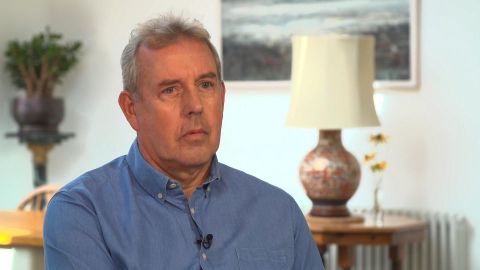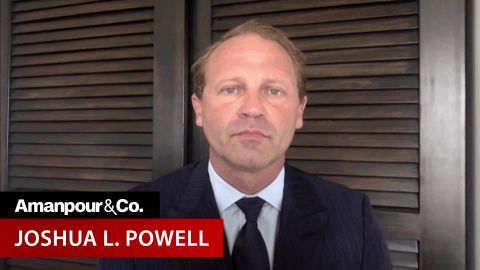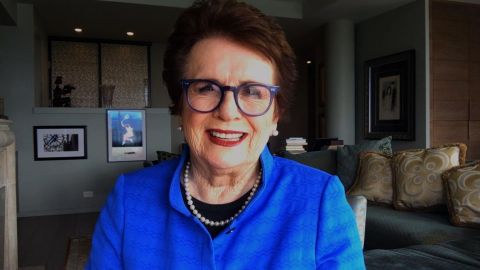Read Transcript EXPAND
BILLIE JEAN KING, FOUNDER, WOMEN’S TENNIS ASSOCIATION: And those two — in two years went by and it has — they’re really getting rid of women’s tournaments, and if we did have a tournament with the men, the ratio of prize money was like 8 to 1, 9 to 1, things were a mess. So, Rosie Casals — so, I went and talked to Gladys Heldman, the publisher of the World Tennis Magazine, please help us. And she did. We had nine girls — women that signed $1 contract with her. And our dream was for the future generations. Because what we were doing is putting our careers on the line. And the three things that we thought about were, number one, that any girl in the world, if she’s good enough, will have a place to compete. Number two, that she’ll be appreciated for her accomplishments, not only her looks. And number three, most importantly, to be able to make a living. Because when we were amateurs before 1968, we made $14 a day, but we were willing to be suspended. I get too much credit really for the original nine. There were nine of us. We were like a team. And Gladys Heldman went out and got Philip Morris (ph), Joseph Coleman (ph) came through for us. So, we had those three elements. You had Joseph Coleman, chairman of Philip Morris, Gladys Heldman, publisher and world tennis magazine, and she is was our promoter, and you had the nine of us that were willing to give up everything for the future. But it worked out unbelievably well. And this year is our 50th anniversary of the original nine.
CHRISTIANE AMANPOUR: So, let me ask you why the activism? I mean, you led the charge there. You’re being modest. You led the charge. Obviously, there were many people who made it happen. But look at what’s happening right now in black lives matter, the most important civil rights uprising we’ve had, you know, since 1968. You’ve got tennis stars — of course, the NBA started it by, you know — well, the NBA, you know, used their power to, you know, not play for a day and now, they’ve apparently come back in order as well to allow, you know, their courts to be used for potential voting locations come November. But look at tennis, Naomi Osaka, who won the open just this weekend, spent the whole tournament wearing seven different masks with names of seven people who had been killed in racial violence. What do you say about sports and activism?
KING: I think it’s fantastic. I’m glad that finally we’re doing more and more of it. But let’s face it, when I was 13, I realized that tennis — I didn’t know the word, but I knew it was a platform. And the athletes today are using that platform. The biggest difference — because I was in my 20s in the ’60s, when you talk about 1968 and the civil rights, we didn’t have technology like we do now. So, the players today, the athletes today can communicate quickly and mobilize quickly.
About This Episode EXPAND
Christiane speaks with former British Ambassador to the U.S. Kim Darroch about his new memoir. She also speaks with Billie Jean King about her influence on and off the tennis court. Michel Martin speaks with former NRA senior strategist Joshua L. Powell about his new book “Inside the NRA,” which accuses the organization of corruption and political extremism.
LEARN MORE


